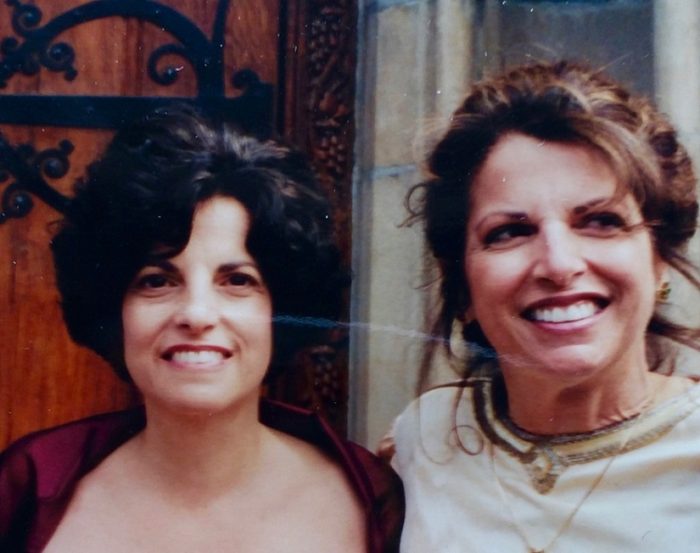It seems life comes down to paper and ink.
However you look at it, delivery can be fast, easy, agonizing, harrowing, difficult, unpleasant, or blissful. We’re born, and we take our first breath. With a stroke of a pen, we have a name and a date.
As we grow, we learn to communicate, articulate, appreciate, accumulate, accommodate, manipulate, and populate. We delight in affection, devotion, success, and romance.
And, then there’s a piece of paper saying we’re gone.
Years ago, I lost my sister—but it was just yesterday, too.
Here are my memories on paper and ink:
My sister was diagnosed with cancer in 2000 and given six months to live. But that was on paper and ink, and so incorrect. She was a professional dental hygienist, working and traveling—a sort of socialite with dozens of friends, a caregiver to our father suffering from Alzheimer’s Disease, a proud mother, dancing at her son’s wedding, visiting hospitals when grandbabies were born, and attending my graduation.
As sisters, we frequented spas, Broadway shows, weddings, birthdays, dinners, parties, and concerts together—Celine Dion in Vegas (on her bucket list) and Andrea Bocelli in New York City (on my bucket list).
But as life would have it, cancer is a full-time job.
Chemo, psychologists, and blood transfusions are time-consuming, and so are the after-affects. In one instance, my sister went into anaphylactic shock with her first treatment of Tamoxifen. In my mind, it’s impossible to look at poisons for a cure. And, once you know how to stay healthy and build your immune system, you can’t unlearn it. But this was not about me.
Insurance would no longer cover her drug of choice, Herceptin, which is prescribed for breast cancer but was being tested for ovarian cancer. She felt she was being kept alive by this medication. As a caregiver, the best I could do was to be there and create a cancer toolkit to help my sister consume a balance of nutrients amid all her chemical concoctions.
The Last Cut
The dreaded last call came in February when my sister said, “They are going to cut me up again.” This would be her fifth surgery. The first was a hysterectomy and then a cholecystectomy after nine months of Lyme disease and prescribed antibiotics. And now cancer, offering months of chemo, more surgeries, and new painkillers.
She described this new and last surgery briefly. I wrote it down so I could digest it later, but all I heard in my head was a cluster of “Oh nos.”
To me, it was the most barbaric way to live the rest of your life—as a bag lady. A bag for urine and a bag for poop. Savage, like some kind of wild cat ripping out critical parts of your body but leaving your heart and brain to feel and remember the pain. It sounded as if it was a matter of fact, something she already thought about—no tears, just something she must do. Something she urgently begged the doctors to do.
We talked about this seven-hour surgery and list of chemicals she would inject into her small frame afterward. At least she would have another year or more.
The surgery was scheduled for the end of March 2009. The reality was that my heart wasn’t ready for this final step with her.
Every person is supposed to exit this world—it’s just a matter of time, I thought. She’s so young, but she’s sick! Conversations in my head continued.
So I wrote a note to self, “If she’s ready, you have to be ready.” This was a sobering moment.
Orange Jello
Hospitals leave me cold, sleepless, useless, and questioning god. Going to the hospital was a mistake for me, but I was willing and ready to take good care of my sister. Upon arrival, her surgery was over and blood was being pumped out of her lungs. She looked so helpless, so fragile. All I could do was hold her hand. Instinctively, I knew she wouldn’t be leaving this bed for at least three weeks.
After a few days, the bleeding stopped, and she was allowed to eat soft foods. That’s when liquid started oozing from the new scar on her stomach. My sister said, “Do you think it’s the orange Jello?”
“Well, it’s not urine,” I said, as I looked at her bag. We laughed, not knowing if she was right or we were just crazy-tired and delirious at this point.
I walked down the hall and called the nurses in to wash her, but they didn’t want to. “We already gave her a sponge bath this morning,” they said, with an evil eye toward me. “It’s time for another,” I said.
Orange Jello—it’s what they fed, and still do feed, extremely sick people in the hospital. Imagine that! It’s just sugar water with a few toxic dyes and chemicals, basically crap. It doesn’t have to be orange, it could be red or green, but this particular day it was orange, and it shocked us all.
The doctors walked in with serious faces and without gloves on. They were all taking notes. But my sister was right—after all the cuts, medications, and trauma, she knew her body. It was orange jello! But the good news was that we laughed about it. We laughed so hard we cried. I told her someone would want to hear this bittersweet story one day. She agreed, and we laughed again.
Tiptoe Through Emotions
It was a year and three months after that surgery that left her nothing more than a human shell. I went back two more times. During my visits, she was given numerous blood transfusions that lifted her spirits for a short while and allowed her to dream again. I helped her shower, eat, medicate, and fixed her hair when the grandkids came to visit. Those children were her loves—what she looked forward to the most.
And, wouldn’t you know it, one day, at a most inconvenient time, the doctors refused to give her any more blood transfusions. That’s when she lost hope. That’s when she traded her huge comfortable bed in for a hospital bed.
Again, I somehow thought if I didn’t have to watch her deteriorate further, maybe it wouldn’t happen. I had to go home. She said, “I’ll see you real soon.”
The day I arrived at hospice, my aunt called me and told me it’s time to come back. I was apprehensive. The last big surgery, where I thought she was going to drown in her own blood, was not as horrifying as this last moment in time with my sister.
Each Breath was a Chore
She was in a coma; they had taken away the oxygen and she was struggling to breathe. Mouth wide open, it looked painful and forceful, but the hospice nurse assured me she was on morphine. In my opinion, there weren’t enough drugs that they could have given her to take the edge off. Morphine wasn’t doing the trick—she needed something more, something so she could go in peace.
Again, the nurse came in checked her eyelids and said, “Not too much longer.” It’s already been too long, I thought, as I held my breath.
My cousin and I conversed while we each held her hand. Two hours later, as I circled the small room with my eyes, I felt her above me. She was still struggling to breathe, but I felt she had already left her body. She knew I was there and wanted me to release her.
I softly said, “You love to dance, Sis. The sky’s the limit. Love you, and I’ll see you real soon!”
She lived with grace in the midst of fear for 10 years.
Sadly, she passed away on June, 2, 2010, at 8:02 p.m., from complications of ovarian cancer, anxiety, metastasis in other organs, multiple surgeries, depression, accumulation of toxic chemicals, and chemotherapy poisoning.
On paper and ink, her heart failed.
She was 61 years old.
~












Read 2 comments and reply